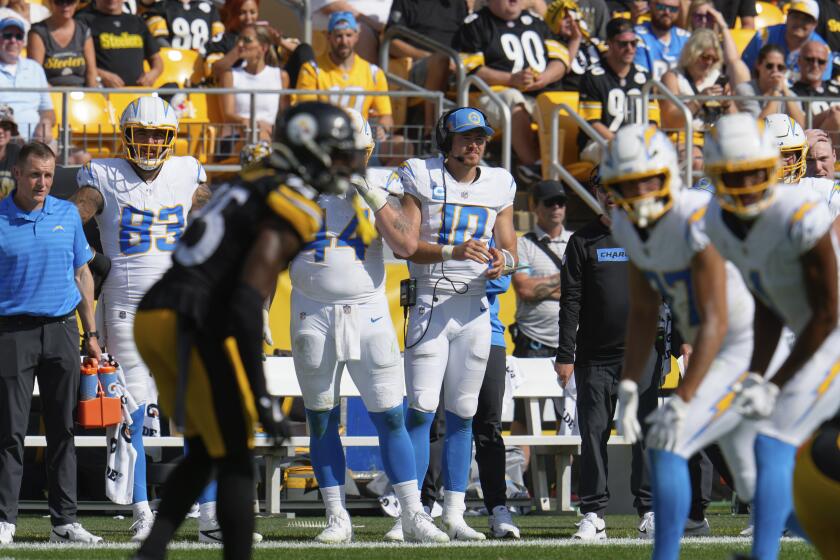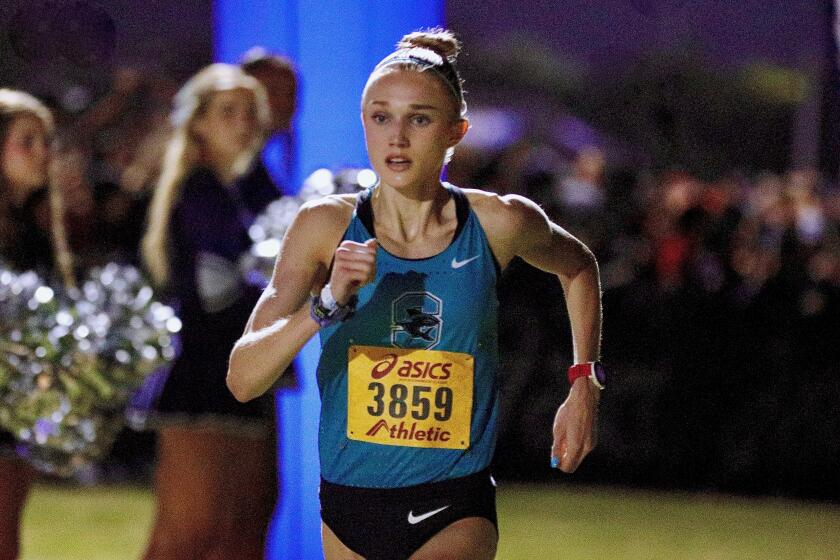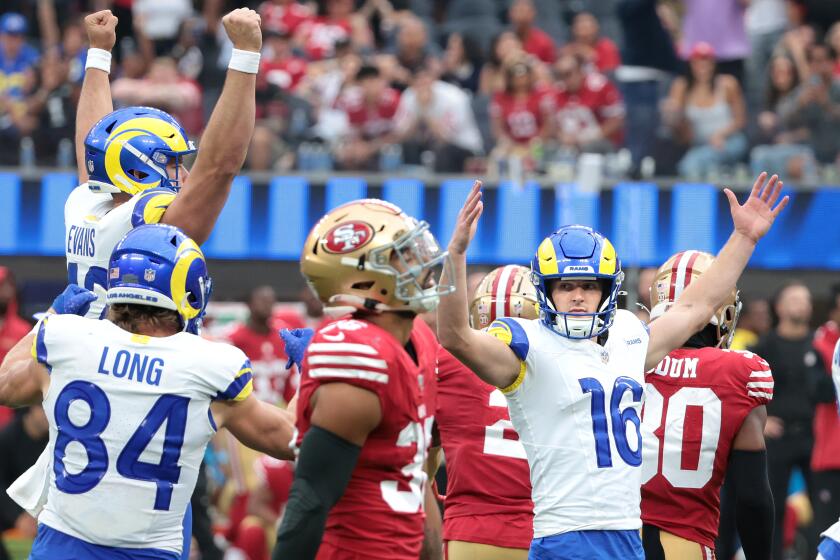Coaches turn back the clock on clock rules
Two controversial clock rule changes introduced last year to college football were rescinded Wednesday -- and most coaches would say it was about time.
The NCAA Football Rules Committee, meeting in Albuquerque, effectively acknowledged that Rules 3-2-5 and 3-2-5-e, enacted to reduce game times, were colossal mistakes.
The committee proposed scrapping both measures and introduced other means to shorten games without eliminating plays or compromising strategy and sportsmanship.
Oregon Coach Mike Bellotti, one of two major-college coaches represented on the 13-person rules committee, hailed the reversal.
“I think these rule changes have restored the opportunity for football players to play football at all levels,” Bellotti said, “and yet we’re taking out some of the dead time, creating more action for the fans and players.”
Wednesday’s proposals will be forwarded to the NCAA Rules Oversight Panel, which is expected to give final approval in March.
Bellotti, who was not a rules committee member last year, was an outspoken critic of last year’s changes.
Rule 3-2-5 called for the clock to start when the ball was free-kicked -- which led to many unintended consequences, most notably when Wisconsin Coach Bret Bielema purposely ordered his kickoff team to run offsides twice to run out the final 23 seconds before halftime against Penn State.
Rule 3-2-5-e dictated that, after a change of possession, the clock would start on the officials’ ready-for-play signal.
This rule affected strategy and forced coaches, at the end of games, to burn valuable timeouts just to prevent the clock from starting.
A recent American Football Coaches’ Assn survey revealed that 58% of major colleges opposed the rules.
The clock rules did reduce the average game time by about 14 minutes, according to College Football Stats, but they also eliminated an average of 13.4 plays a game.
“Length of game was an issue,” said Mike Clark, football coach at Division III Bridgewater (Va.) College and this year’s rules committee chairman. “We had to see what we traded to get it. We really didn’t feel the trade was worth the exchange.”
Clark conceded last year’s changes “did not have a positive effect on college football at all levels.”
The rules committee, which includes coaches and administrators from all NCAA divisions, introduced the following measures to shorten games but not the number of plays:
* Limit the play clock to 15 seconds after a timeout. “That’s an easy one where we can cut some dead time out,” Bellotti said. Estimated time saved: three minutes.
* Kickoffs moved from the 35-yard line to the 30. This change -- basically adopting the NFL standard -- will produce more returns and, thus, more running time off the clock. Estimated savings: one minute.
* Reduce charged team timeouts from 90 to 60 seconds. Most teams call timeout because they can’t get a play off in time or are lined up in the wrong formation. This change is more like the 30-timeout in basketball. Estimated savings: three to six minutes.
* Penalties for kicking-team fouls can be enforced at the end of the run. Not forcing units back on the field for re-kicks should save about two minutes a game.
* The play clock starts when ball is handed to the kicker by the umpire. The kicker has 25 seconds to put foot to ball instead of an unlimited span in which to spin the ball his finger, check wind speed, or wave to friends in the stands. Estimated savings: Two minutes.
* Instant replay reviews are limited to two minutes. This rule puts a cap on replay and is only a potential time-saver. The average review in 2006 was 1 minute 49 seconds.
The committee estimated the changes still save 14 minutes a game while eliminating all of last year’s controversial components.
Bellotti said the committee “did a great job” and said he was “satisfied as a coach” that the changes would restore competitive order.
The committee also voted to adopt, starting in 2008, the NFL’s 40-second clock rule between plays. In college, the 25-second play clock doesn’t start until the ball is set by the official.
*
More to Read
Go beyond the scoreboard
Get the latest on L.A.'s teams in the daily Sports Report newsletter.
You may occasionally receive promotional content from the Los Angeles Times.











